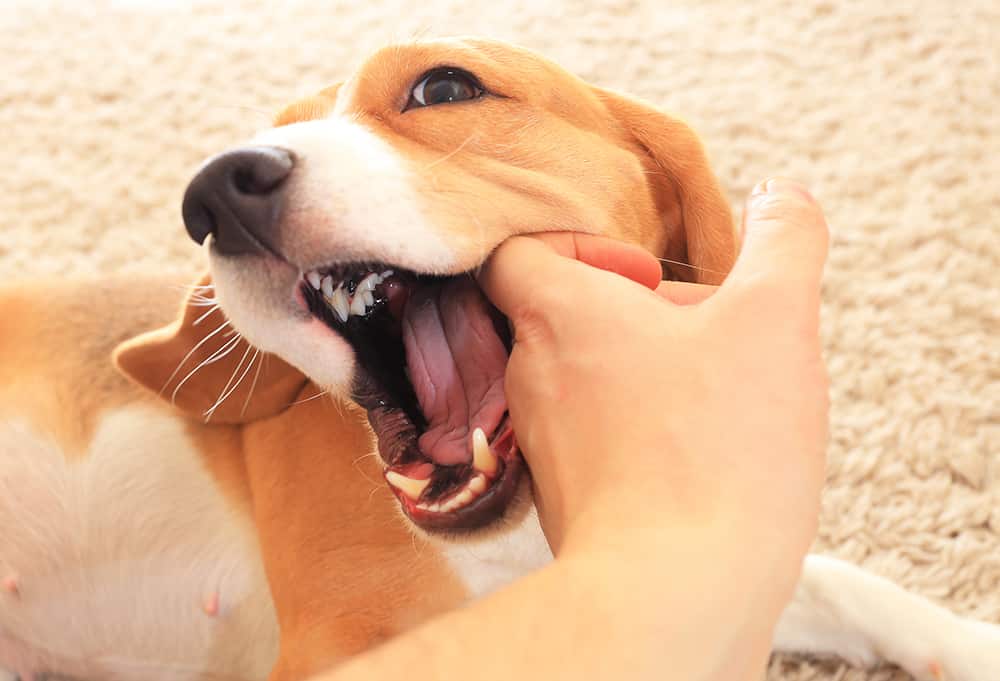Play biting is normal for dogs, especially for puppies. But sometimes, they do not realize that it gets too much already and it is not playing time anymore. Also, they might do the same thing to other people or to your house guests who are scared of dogs. It should be stopped before it gets out of hand, no matter how adorable they are and no matter how you love playing with them.
If you are asking your self how to train a puppy not to bite, read on for some handy tips that will help you out.
- Stop them when they start to play bite. Be firm with “NO”
Sometimes, it is as simple as stopping something before it becomes a habit. When your puppy starts to bite you, even if it is gentle and doesn’t hurt at all. This is crucial because if you don’t, it will become a habit or a playtime kind of thing for your dog that it won’t be as gentle and controlled as it was when it was starting.
Say “no” firmly without breaking your puppy’s spirit or scaring it away. You can even walk away and not give your puppy attention. When it comes to children, tell them to stay calm, keep their hands on the side, and walk away.
- Give your puppy a chew toy to play with or rawhide bone to chew on.
When puppies are teething, it is normal that they would bite things in your house like your electric cords, your rugs, your sofa, and almost everything. You should give your puppy something to chew like a rawhide or chew toy to stop it from biting everything in the house or even you. This is redirecting your puppy’s attention and let it know which things are acceptable and what aren’t.
This way, your puppy can learn that it is not allowed to bite human skin but it is allowed to bite chew toys. Train your puppy to stop and stay then give it a treat. So it doesn’t seem like a punishment, but a positive reinforcement.
- Give yummy treats or rewards when your puppy follows your command and stopped biting.
It is only proper to reward good behavior. So be generous and give your puppy a yummy treat for behaving properly and not biting. Verbal rewards also work well. You can tell your puppy “good girl” or “good boy” whenever it follows a command. This is effective to encourage your puppy to behave and will make it happy.
- Spray some taste deterrent on things that your puppy loves to bite on.
These taste deterrents can make things seem unpleasant for your puppy. You can create your own spray at home by using white vinegar, bitter apple, or even Vicks vapor rub. Be careful and not use sprays or things that can be harmful to animals. Do your research or ask your veterinarian about suggestions. Some chemicals can cause paralysis or can even kill your puppy.
A spray bottle with water also works in severe cases especially when followed by a firm “no.” For instance, when your puppy starts to bite something that is not allowed, you can spray a little water to stop it from biting.
Remember, you only have to stop the behavior and not totally scare your puppy by associating the water bottle as punishment for biting or anything else. This is how to train a puppy not to bite.
- Make sure you do not allow your puppy to play rough.
Play biting occurs during playtime. So when you play with your puppy inside the house or at the park, do not let your puppy play rough. If you do, your puppy will think that it is okay to play rough even with children. Also, never use your hands as toys. This is an absolute no go area especially when learning how to train a Puppy not to bite.
You should be careful not to let children play with the puppy when it is not fully trained yet or even if you think it is harmless. You can supervise playtime with the children or train the puppy first before letting them play with it.
Puppies normally bite to explore things that are new to them so they would know when to bite, how hard to bite, and not to bite at all. It is an inhibition. As an owner, it is your responsibility to train your puppy not to bite or to bite only appropriate things, like chew toys.
How to train a puppy not to bite is not hard if you start consistently training at the early stages. If not, your puppy might develop behavioral issues and just bite things and people when it gets scared, mad, and anxious.
Be a responsible and train your puppy not to bite. You will reap the rewards when your puppy becomes a full grown adult dog. You will have a well-behaved, well-adjusted dog that is safe to be around people and kids.
